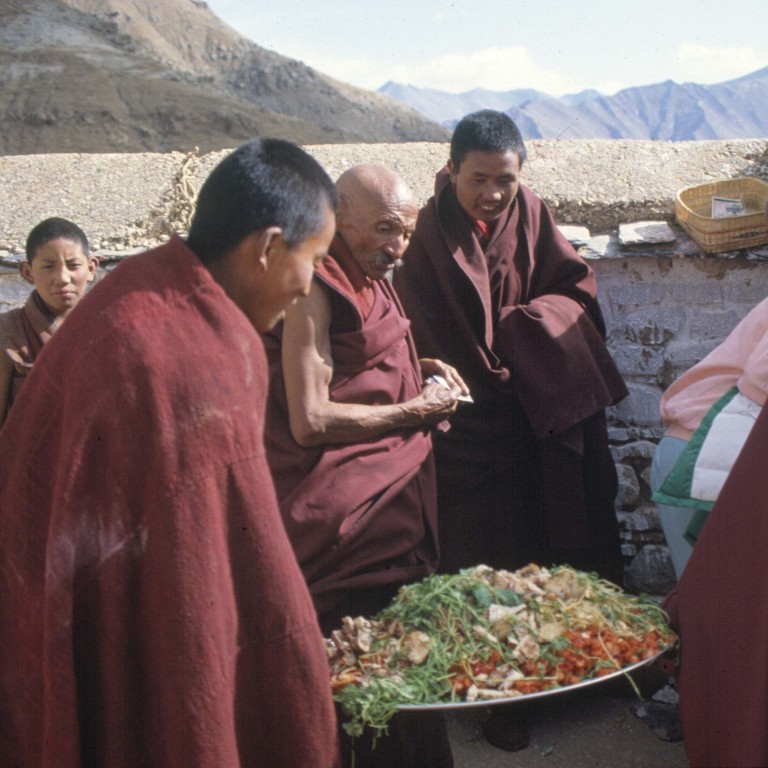
How Chinese Buddhist monks and nuns became vegetarians, even though the dharma didn’t forbid the eating of meat
- Abstinence for spiritual or religious purposes has long been a way for the devout to meditate on their beliefs
- In Chinese Mahayana Buddhism, monastic regulations prohibiting all meat consumption were laid down by imperial decree
Many people associate Ramadan with the Islamic practice of fasting from sunrise to sunset, but while abstinence from food and drink is an essential feature, Ramadan entails much more than that. For Muslims, the holy month is also a time of spiritual contemplation, self-improvement and more intense religious devotion.
Abstinence for religious or spiritual purposes is called zhaijie in Chinese. Rarely done in contemporary times, the Chinese used to practise a form of preparatory abstinence, where the devotee denied themselves certain foods, all alcoholic drinks and sexual activities a few days before they worshipped and made offerings to their ancestors or other deities.
Bathed and changed into clean clothes, they secreted themselves in a purpose-built lodge outside their homes, where they meditated on the object of their devotion, with whom they would commune in several days’ time.
A different kind of Ramadan: Hong Kong Muslims fast at home
Another form of abstinence is done to give thanks or to fulfil a promise made to a deity. This is a very common form of zhaijie where the pious refrain from eating certain foods on specific days or for a short period of time. Many Chinese go vegetarian or even vegan every first and fifteenth day of the month of the traditional Chinese calendar for such purposes. Those who cannot fulfil their oaths to the divine can make up for it by sponsoring a vegetarian meal for other people.
Chinese Buddhist monastics and the more devout lay Buddhists practise a permanent form of abstinence by becoming vegetarian or vegan. Some even abstain from certain pungent vegetables such as onions, garlic and leeks because they believe that the intestinal gas and halitosis caused by ingesting these plants would interfere with their meditation and offend the deities.
Many people assume that the practice of vegetarianism or veganism among Buddhist monastics is an enduring and unassailable truth, but Buddhist monks and nuns used to eat meat, and some still do. While the taking of sentient life is forbidden to them, they are allowed to consume the meat of animals that were killed out of their sight, killed without their knowledge, and not killed specifically for them. Many members of the Buddhist clergy from the Vajrayana and Theravada traditions in Tibet, Sri Lanka and Southeast Asia still eat the “three clean meats”.
In Chinese Mahayana Buddhism, monastic regulations prohibiting all meat consumption, including the “three clean meats”, were laid down by imperial decree in AD520, almost a thousand years after the birth of Buddhism.
Citing passages in the Nirvana Sutra, Emperor Wu of the Liang dynasty, a devout Buddhist, demanded Chinese Buddhist monastics to abstain from all meats. They were initially defiant, protesting that the dharma did not forbid the eating of meat but the prohibition was enforced, the practice caught on and it has been so ever since.
A Ming dynasty (1368–1644) treatise on zhaijie avers that “zhai puts right one’s inner being” while “jie prohibits what is on the outside”. Be it zhaijie or fasting during the month of Ramadan, the ultimate purpose of all forms of religious asceticism, whatever their intensity, is spiritual rejuvenation through physical deprivation. We often fail to see the wood for the trees, however, and over-fixate on observable acts at the expense of the inner and unseen. We forget that abstinence is never the endgame.

